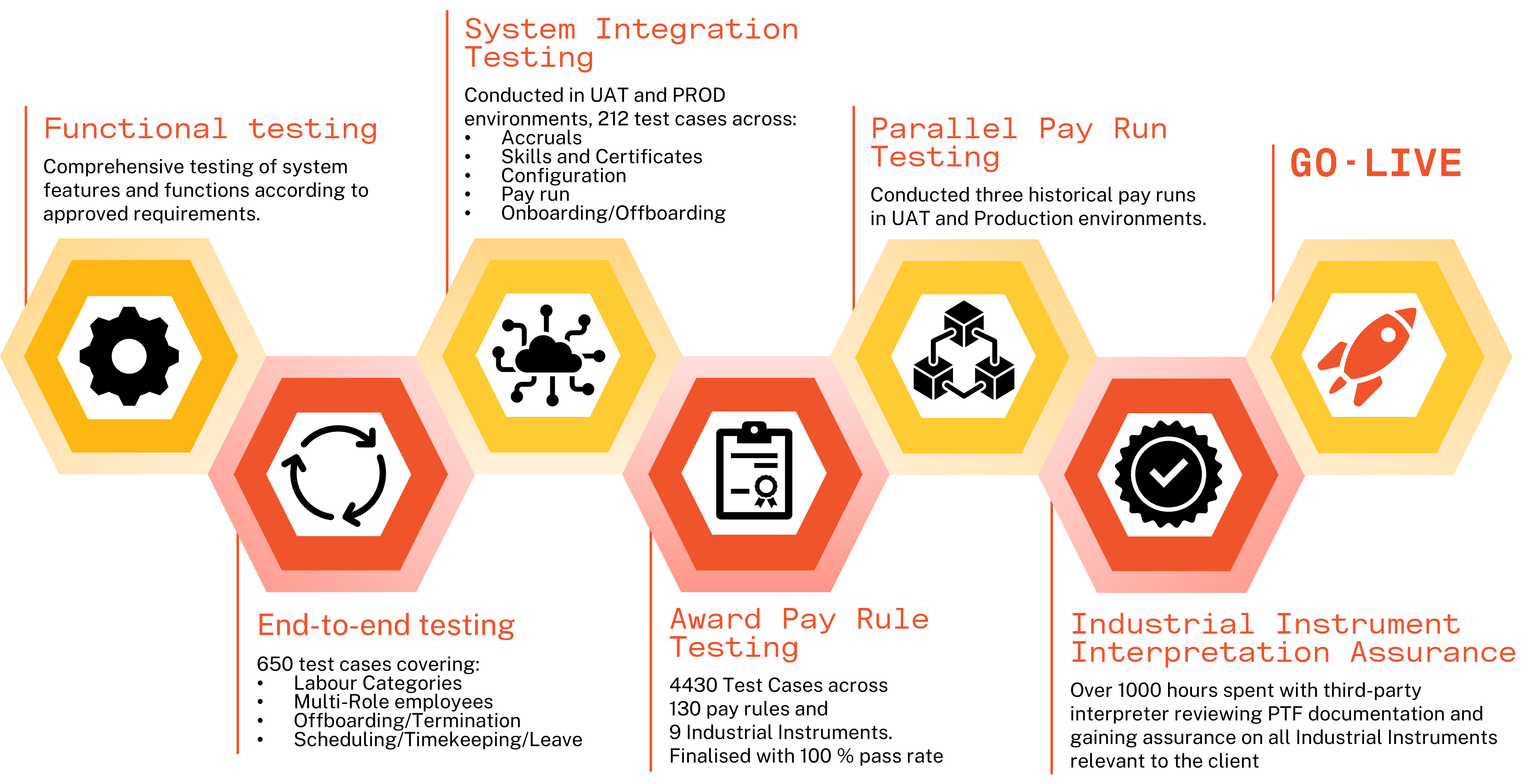Exent stepped in to rescue a struggling workforce management project for a health and human services client. Challenges in governance and planning led to delays and budget overruns. Exent’s approach involved restructuring governance, implementing a new solution for 4,000 staff, and ensuring compliance. The outcomes included a clear scope, improved stakeholder engagement, on-budget and timely delivery, and readiness for future agreements. The project successfully achieved phased go-live, showcasing increased adoption and improved execution.
CHALLENGE
Exent were engaged by a large client operating in the health and human services industry to remediate a project experiencing significant headwinds. The mission was to implement a new workforce management solution into a complex environment, however the inflight internal project team faced numerous issues across governance, planning, vendor management, solution complexity, target state design and internal capability. Issues manufactured in poorly defined project scope, lack of sponsorship, people and productivity gaps, and a sense of internal fatigue and disengagement. The ultimate effects were experienced in project slippage and significant budget overruns.
In supporting a turnaround of the project, the client and Exent explored root causes in executive and team turnover, project governance and control, lack of a clear scope, and suboptimal project delivery capability. It was discovered that the project had been in progress for 12 months without a defined project scope or business requirements defined.
Exent was engaged to review and remediate the project, establish a robust governance structure, and then oversee and support the full implementation of the workforce management solution, and in particular the introduction of a new rostering, time and attendance and award interpretation capabilities in a diverse, regionally dispersed business, deploying into around 4000 staff. Our responsibilities also encompassed integrating the new system with the existing payroll system, addressing data integrity issues, streamlining business processes, and ensuring compliance with the latest industry awards and agreements.
Exent was engaged to review and remediate the project, establish a robust governance structure, and then oversee and support the full implementation of the workforce management solution, and in particular the introduction of a new rostering, time and attendance and award interpretation capabilities in a diverse, regionally dispersed business, deploying into around 4000 staff. Our responsibilities also encompassed integrating the new system with the existing payroll system, addressing data integrity issues, streamlining business processes, and ensuring compliance with the latest industry awards and agreements.
Exent’s assessment revealed the project had been underway for 12 months without a project scope or requirements. 60% of the project’s 5-year-budget had been exhausted within the first 12 months, with little to show. Subsequently, Exent was engaged to recover the project.
The shift to the new system necessitated a ground-up configuration of approval lines, schedules, and access profiles for approximately 4,000 employees. Additionally, new Government legislation and industrial relations mandates introduced fresh requirements and modifications in staff record keeping, including the collection of punch data from all non-salary staff. This presented a significant change for the majority of the client’s employees, necessitating a comprehensive adaptation strategy.
The project required a high level of confidence in pay rule configuration to mitigate non-compliance risks stemming from correctly interpreted Enterprise Agreements. The internal project team initially pursued a like-for-like implementation approach. However, Exent’s review revealed potential pay rule discrepancies, rendering the original approach unsuitable and calling for a complete overhaul.


